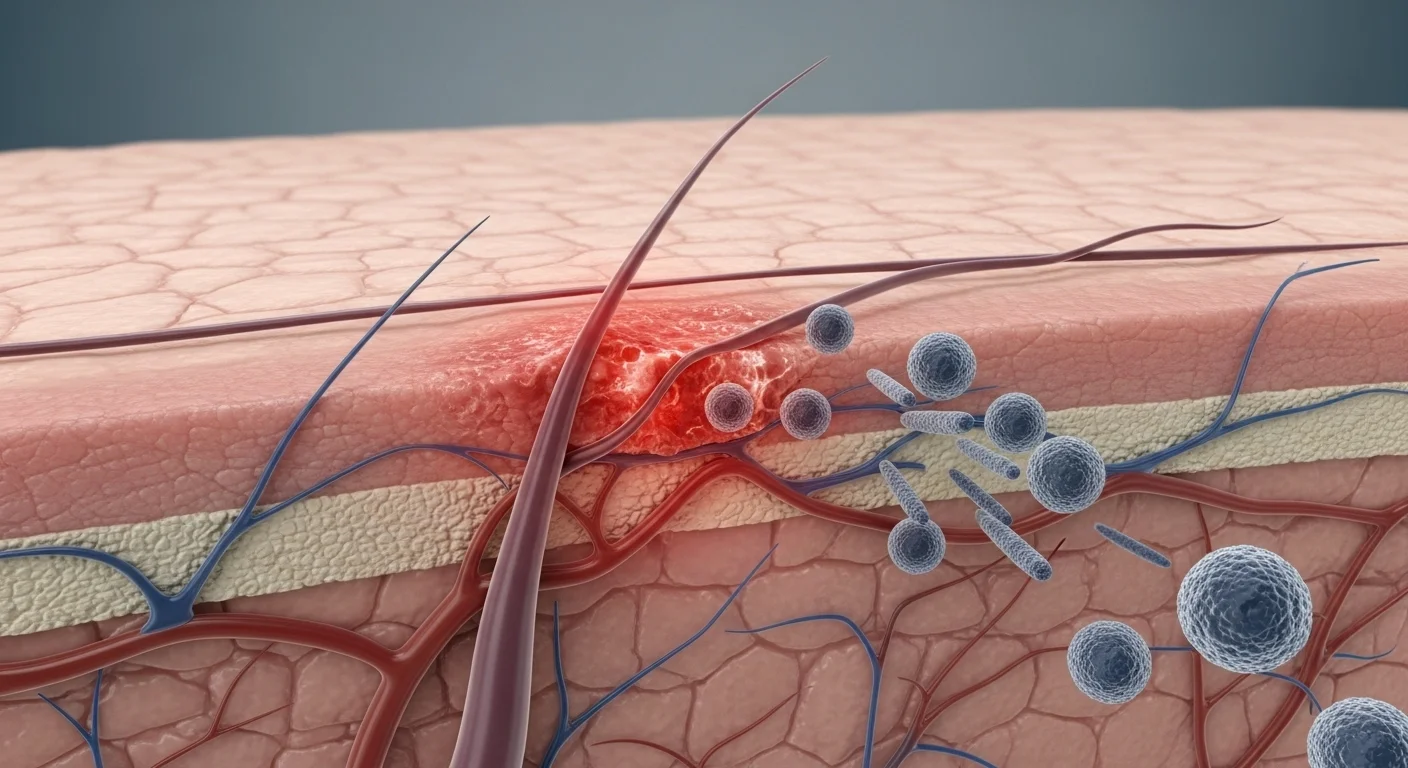Fight Inflammation Naturally: Foods to Reduce Chronic Inflammation
Inflammation is a natural defense mechanism the body uses to protect itself against injury and infection. Think of the redness, swelling, heat, and pain that accompany a cut or a bug bite. However, when inflammation becomes chronic, it can lead to a host of health problems.
Chronic inflammation, often simmering silently, has been linked to weight gain, joint pain, skin issues, fatigue, and digestive problems. More seriously, it can contribute to the development of diabetes complications, cardiovascular disease, high blood pressure, obesity, gastrointestinal disorders, cancer, and even dementia.
Several factors can increase the risk of chronic inflammation, including a diet high in processed foods, lack of exercise, sleep disturbances, stress, air pollution, and smoking. Fortunately, dietary changes can play a significant role in preventing and reducing chronic inflammation. Embracing antioxidant-rich foods like fruits, vegetables, and nuts is a great starting point.
Here are some foods that can help you fight inflammation naturally:
-
Green Tea: Packed with catechins, powerful anti-inflammatory compounds, green tea can help reduce inflammation, particularly in the gut. Studies suggest that green tea may be beneficial for individuals with inflammatory bowel diseases, strengthening the intestinal barrier and promoting a healthy gut microbiome.
-
Tofu (and other Soy Products): Soy foods like tofu contain isoflavones and omega-3 fatty acids, both of which can help lower inflammation levels in the body.
-
Carrots: Rich in beta-carotene, a potent antioxidant, carrots can help protect the lungs from inflammation caused by harmful substances, potentially preventing cancer development. Beta-carotene has also been linked to a reduced risk of certain types of cancer.
-
Apples: Apples are a good source of quercetin, an antioxidant that helps prevent cell damage and may protect against the development of cancer from chronic inflammation. Their high fiber content also promotes healthy digestion and may help prevent colon cancer.
-
Nuts: Walnuts, almonds, peanuts, and other nuts are rich in vitamin E and omega-3 fatty acids, which help eliminate waste products from the body and prevent cholesterol buildup in blood vessel walls. They can help prevent inflammation and slow the progression of existing inflammation into cancer, potentially benefiting breast and lung health.
-
Pineapple Juice: Pineapple contains bromelain, an enzyme that inhibits the proteins that cause various inflammatory conditions. It is particularly effective in relieving joint pain and swelling. Studies have shown that bromelain can provide anti-inflammatory and analgesic effects for individuals with osteoarthritis and rheumatoid arthritis. Pineapple juice can also help alleviate exercise-induced inflammation due to its potassium content.
-
Garlic: Garlic prevents the production of substances that trigger inflammation. Heating garlic can further enhance its anti-inflammatory effects.
-
Egg Yolks: Egg yolks contain vitamin A, an antioxidant that fights inflammation, supports vision, and promotes normal cell development. Research suggests that consuming up to two egg yolks per day does not significantly raise cholesterol levels for most people.
-
Berries: Berries are rich in polyphenols, powerful antioxidants and anti-inflammatory agents. Studies have shown that drinking berry juice can offset the negative effects of a Western-style diet, which is known to increase inflammation.
-
Salmon: Salmon is rich in two potent omega-3 fatty acids: eicosapentaenoic acid (EPA) and docosahexaenoic acid (DHA). These compounds reduce inflammation and lower the risk of cancer, heart disease, asthma, and autoimmune diseases.
-
Shiitake Mushrooms: These mushrooms contain compounds that help boost the body’s immune response and fight infection. Their antimicrobial properties are also being explored in cancer treatment. Polysaccharides found in shiitake mushrooms can alleviate immune damage caused by chemotherapy or radiation.
-
Ginger Tea: Ginger tea promotes blood circulation and warms the body. It can soothe an upset stomach and relieve nausea. It’s also beneficial for joint inflammation. Research suggests that ginger can help alleviate joint pain and stiffness.
-
Tomatoes: Tomatoes are well-known for their lycopene content, which may help prevent prostate cancer. Lycopene, a potent antioxidant, can slow down oxidation in the prostate and prevent inflammation from progressing into cancer cells. Tomatoes also contain antioxidants that strengthen the immune system and lower estrogen levels, potentially reducing the risk of breast cancer.
-
Chicken: Chicken is a good source of protein and selenium, which can inhibit the development of cancer cells into tumors. The linoleic acid in chicken is an essential fatty acid that helps lower blood cholesterol levels, benefiting cardiovascular health. Chicken is also low in saturated fat, a risk factor for heart disease, making it a good choice for preventing obesity and colon cancer.
-
Pumpkin: Pumpkin contains carotenoids, antioxidants that act as rust inhibitors in the body. These compounds neutralize free radicals that can damage cells and DNA, potentially preventing disease. Pumpkin also contains beta-carotene, which is effective in treating inflammation in the skin and lungs.
-
Beets: Beets have been shown to lower blood pressure and increase stamina. They also possess anti-inflammatory properties. Beets contain betaine, an amino acid that reduces inflammation risk.
-
Kale: Kale is rich in vitamin K, which has significant anti-inflammatory effects. One cup of kale contains 10% of the recommended daily intake of omega-3 fatty acids, which also contribute to reducing inflammation.
-
Tangerines (Mandarins): Tangerines are packed with vitamin C, a powerful antioxidant. They contain approximately 20 times more vitamin C than apples. Tangerines also contain methoxyflavonoids, which are particularly effective in fighting inflammation and preventing cancer.
By incorporating these foods into your diet, you can take proactive steps to combat chronic inflammation and improve your overall health and well-being. Remember to consult with a healthcare professional or registered dietitian for personalized dietary advice.




